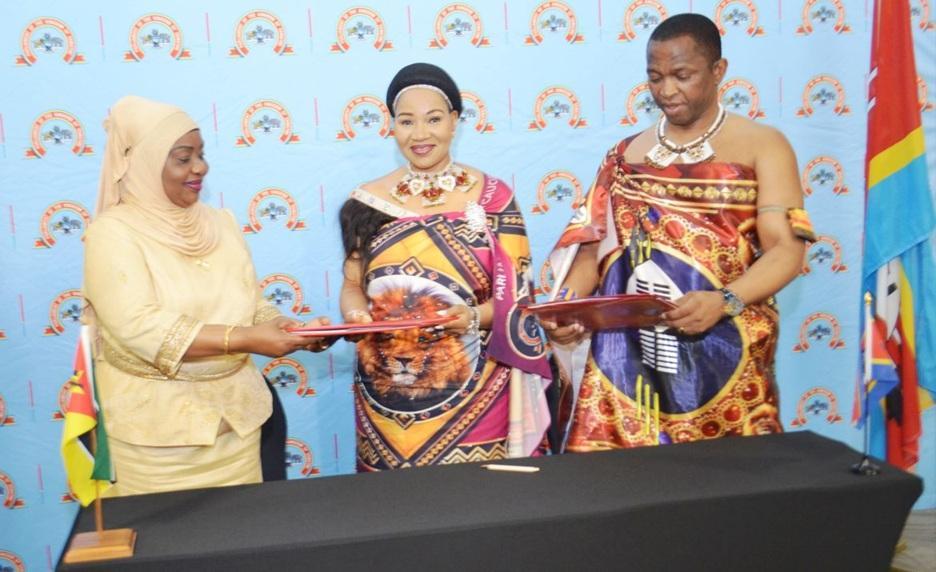Africa-Press – Mozambique. The President of the Assembly of the Republic, Margarida Talapa, and her counterpart from the Kingdom of Eswatini, Jabulani Mabuza, signed a Cooperation Protocol this Monday in Mbabane, aiming to deepen parliamentary relations.
The signing of this instrument comes in the context of the visit that the President of the Mozambican Parliament is making to the neighbouring country as a corollary of the meeting held last July in Geneva, Switzerland, between Margarida Talapa and Senator Lindiwi Dlhamini on the sidelines of the Inter-Parliamentary Union (IPU) meeting.
This document establishes the terms and priority areas of a two-year action plan governing human resource development, political and diplomatic coordination, experience sharing and delegation exchanges.
Margarida Talapa praised the level of cooperation between the governments of the two countries and, above all, the leadership of President Daniel Chapo and King Mswati III, which has enabled Mozambique and Eswatini to take substantial steps in several areas, notably regional integration, mutual investment, trade, and strengthening the private sector.
“At our last meeting, in July of this year in Geneva, we agreed on the importance and urgency of elevating parliamentary cooperation between our countries to the same level as intergovernmental cooperation. I congratulate Your Excellency and your team on the initiative of presenting this proposed Cooperation Protocol, which will undoubtedly contribute to this end. It is therefore with great satisfaction that we celebrate its signing today,” said Talapa.
In turn, Jabulani Mabuza stated that the signing of the protocol embodies African values, rooted in the ‘Ubuntu’ philosophy – “I am because you are” – which emphasizes human respect for others. “The act we have just witnessed is a solemn moment that transcends the protocol as an instrument of cooperation. It carries with it very strong symbolic values. It exalts the brotherhood between the peoples of Eswatini and Mozambique, united by culture, language, and ties of family. This protocol is an instrument of inclusive governance,” Mabuza emphasized.
The speaker of the Eswatini parliament presented the structure of the governing body, explaining that it is composed of 76 deputies, of whom 60 are elected in 59 constituencies, ten of whom are appointed by the king after consulting his advisors, and four of whom are women elected by the country’s four regions – Hhohho, Manzini, Lubombo, and Shiselweni.
For More News And Analysis About Mozambique Follow Africa-Press






